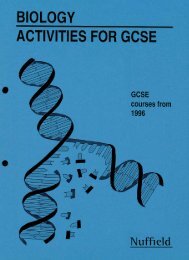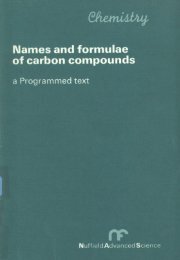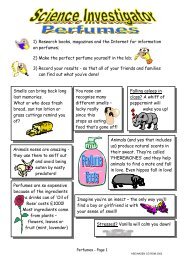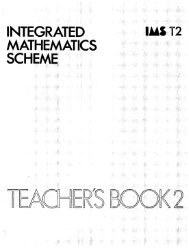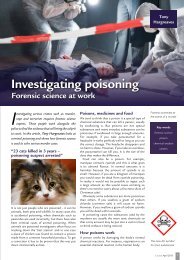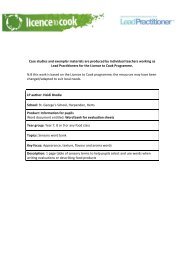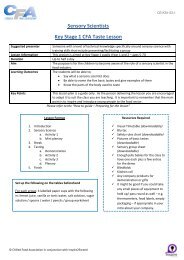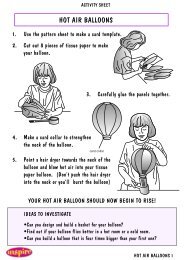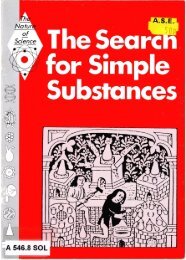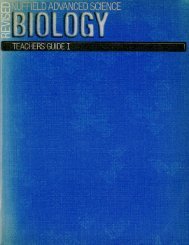Louis Pasteur by Nicola Kingsley - National STEM Centre
Louis Pasteur by Nicola Kingsley - National STEM Centre
Louis Pasteur by Nicola Kingsley - National STEM Centre
You also want an ePaper? Increase the reach of your titles
YUMPU automatically turns print PDFs into web optimized ePapers that Google loves.
A sheep being<br />
vaccinated<br />
32<br />
When he discovered that he could vaccinate against<br />
chicken cholera, <strong>Pasteur</strong> turned his attentions back to<br />
anthrax. Could he develop a vaccine for this disease too?<br />
Both anthrax and chicken cholera were caused <strong>by</strong> rodshaped<br />
microbes; this type of microbe was called a bacillus.<br />
The chicken cholera bacillus was weakened <strong>by</strong> exposure to<br />
air, but the anthrax bacillus was not. It just produced<br />
spores which survived and later grew into more microbes.<br />
Eventually <strong>Pasteur</strong>'s assistants discovered that it was<br />
affected <strong>by</strong> temperature. If kept at 42-43°C it stopped<br />
producing spores, and after eight days at this temperature<br />
it lost its virulence (its ability to produce disease). Using<br />
this weakened bacillus, <strong>Pasteur</strong> successfully vaccinated<br />
guinea pigs, rabbits, and sheep.<br />
As usual, he wanted to give his discovery as much<br />
publicity as possible. He seized upon an article which had<br />
been written a month before he developed the new vaccine.<br />
In the article, which appeared in a veterinary journal, a<br />
Monsieur Rossignol had tried to turn all the new<br />
discoveries being made about microbes into a big joke.<br />
Obviously he thought that some scientists, <strong>Pasteur</strong> in<br />
particular, exaggerated the power of such tiny creatures.<br />
He ended the article <strong>by</strong> suggesting that the claims of the<br />
microbiologists be put to the test in public.



